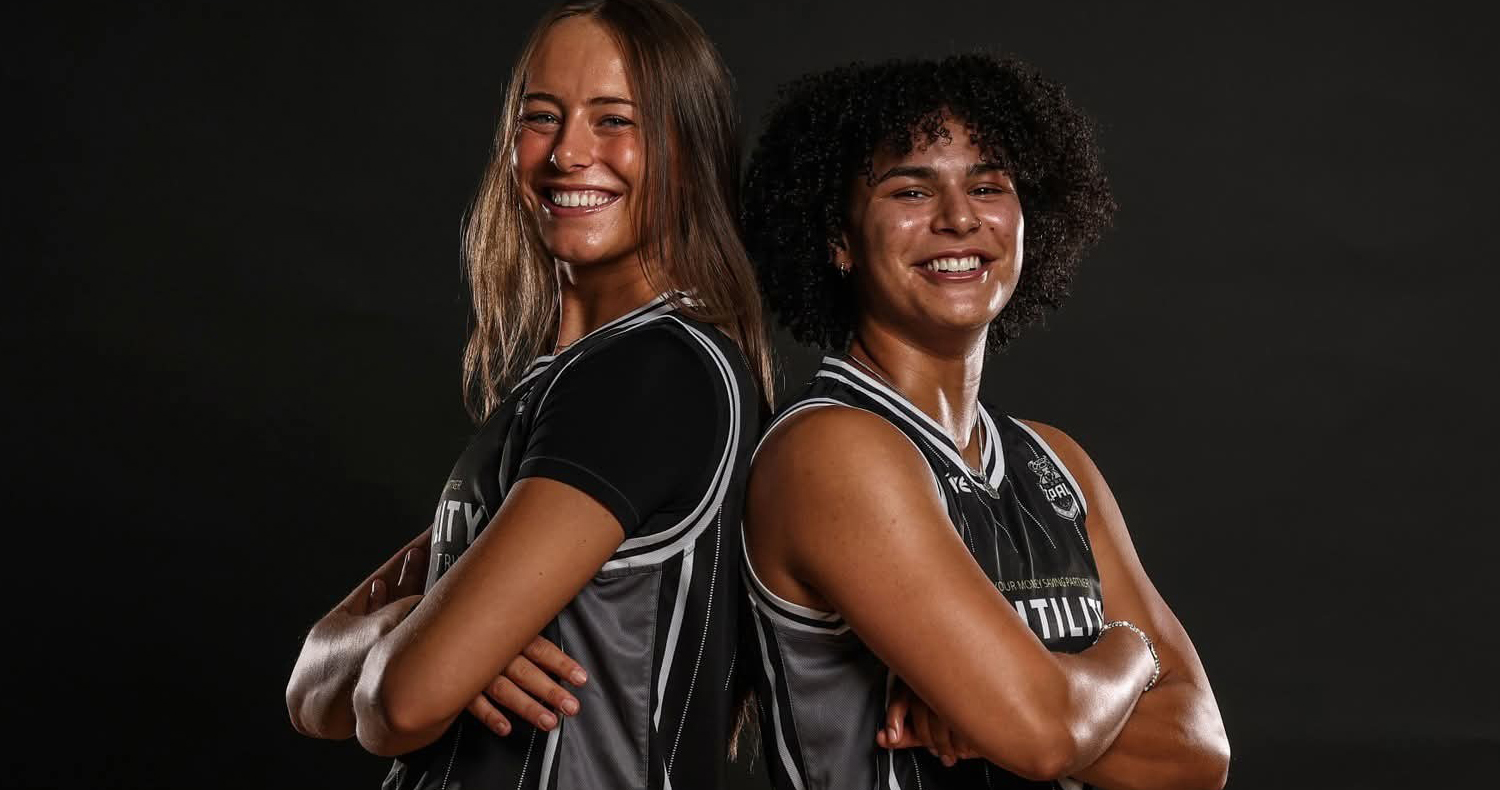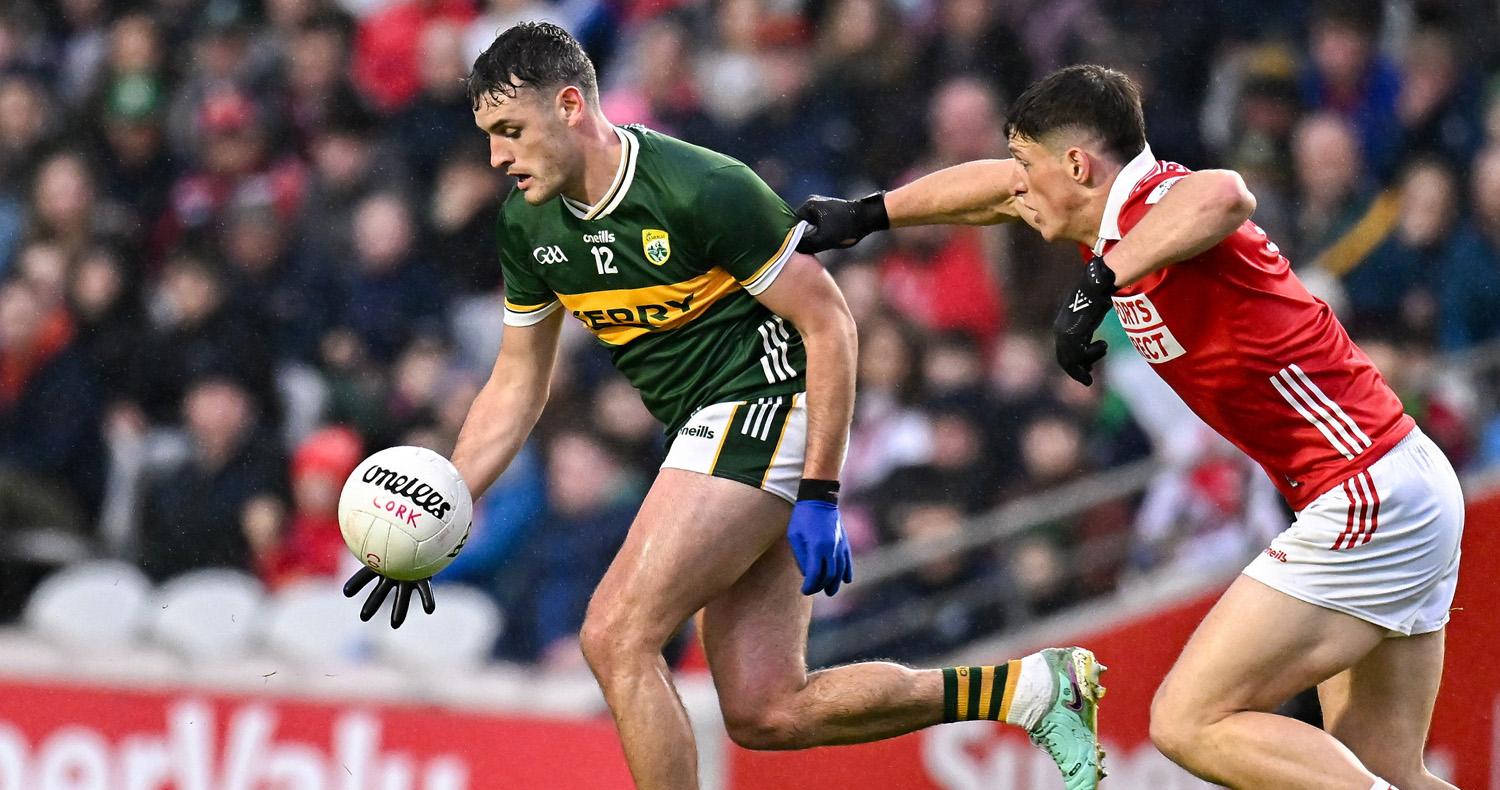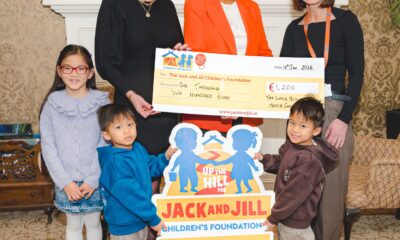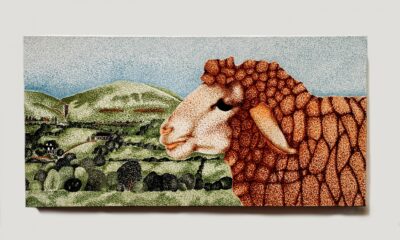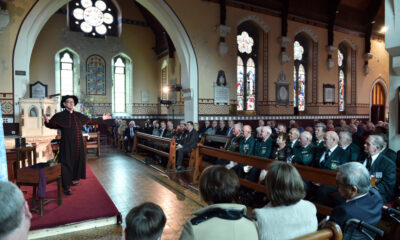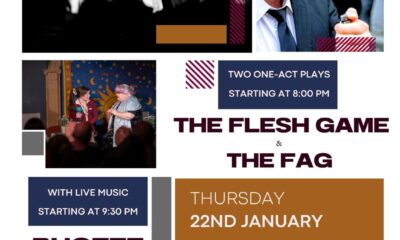Sport
Eamonn Fitzgerald: Time to honour the heroes of Jadotville

Eamonn Fitzgerald speaks to Kerry All-Ireland winner Noel Lucey about his brother, Jimmy, who survived the infamous Siege of Jadotville
Heroes should be remembered and it is never too late to do so. I have often been critical of the need for the Irish Senate, seeing it as a talking shop and an unnecessary huge expense on the Irish taxpayer.
However, I was very heartened to read the Seanad report last week and the resolution to honour 155 Irish soldiers, whose incredible bravery as peacekeeping heroes in Jadotville in 1961 has been for the most part ignored by successive governments for the past 59 years.
More about that later but first of all let us focus on two Kerrymen who were central to the mission, Pat Quinlan and Jimmy Lucey, who are sadly both now dead. Any of our readers who have seen the film ‘The Siege of Jadotville’ will appreciate the incredible story from 1961. Commandant Pat Quinlan was the leader of the A Company of the Irish Army's 35th Infantry Battalion. Jimmy Lucey played at midfield for Kerry in the 1962 All-Ireland final alongside Mick O’Connell. His brother Noel played at centre back that day and earlier this week I spoke to Noel, living in Glenflesk, about that 1962 final win and about his late brother Jimmy.
MAGICAL
My own memories of the 1962 All-Ireland are of listening to Micheál Ó Hehir creating those magical pictures for those of us at home listening to him on the wireless. We didn’t have a TV, even though that was the first All-Ireland televised live. I had it tuned in to Radio Éireann long before the throw-in and it was a good job, because there was an explosive start to the match. Kerry won the throw-in and unlike the modern ploy of working the ball in usually involving several inter-passing movements, the ball was dispatched route one to the forwards as Dr Eamonn coached at that time. No dilly dallying with it but send it in long to the forwards whose function is to score.
Gary McMahon was corner forward and he punched the ball past Aidan Brady in the Roscommon goal. Kerry were a goal ahead and all it took was 34 seconds, the fastest goal ever scored in an All-Ireland final and that still stands 59 years later. Gary has long since passed away but his younger brother Eoin, a solicitor in Newcastlewest, often told me that ever since then when he goes to an All-Ireland final he stands up for 34 seconds and only then can he relax and sit down on his seat knowing that his brother’s record stands for another year at least.
Johnny Culloty was the Kerry goalkeeper in 1962, when the Kingdom won the All-Ireland title for the 20th time.
My other memory of that game was of Jimmy Lucey catching a fine ball very early on in the game, then turning around and kicking it in towards his own goal providing an unexpected present for the unbelieving Roscommon forwards. Many friends said it happened much later in the game but Noel Lucey said my memory was correct. Goalkeepers were in no hurry to kick out the ball after a shock goal. Aidan Brady went long with the kick-out, as was the only game tactic of the day. No short kick out to the corner back. Jimmy Lucey fetched the O’Neills ball turned and kicked it in towards his own backs. I said to Noel that maybe Jimmy wanted to pass it to his brother. Maybe so, but he didn’t exert an accurate kick-pass. The ball landed some yards to Noel’s side, but any danger was quickly averted by that brilliant left halfback beside him, Mick O’Dwyer, who nipped into the ‘bearna baol’ and sent the leather up to either Dan McAuliffe or Jerry O’Riordan.
ATTACKED
Just one year earlier, Jimmy Lucey and 154 of his lightly armed fellow Irish soldiers were attacked from 7.48am on the morning of September 13, and all hell broke loose. They were holed up for five days fighting for their lives, in what is remembered as the Siege of Jadotville. They were sent to protect settlers and locals as part of a UN peacekeeping mission in the hostile and volatile situation in the Congo.
They were led by another Kerryman, Commandant Pat Quinlan from Caherdaniel parish. I got to know Pat in Dublin in the late 60s/early 70s and met him on a number of occasions where Kerrymen met. There was no ‘eirí in áirde’ in Pat Quinlan’s demeanour about his incredible leadership in Jadotville on September 13-17, 1961 and he didn’t say too much about their ordeal, although he was hurt by the reception they got when they came home.
They were publicly condemned. He was referred to as a coward for calling for a ceasefire and surrendering. He had no other choice with rations and waters supplies exhausted. The Irishmen’s bravery, masterful tactics and gallantry were all forgotten. In 2008 Maurice O'Keeffe recorded an audio documentary on Jadotville for South County Dublin Council. He found that the survivors had raw feelings about how they'd been portrayed.
"Crowds would abuse them at football matches. Some turned to drink or suffered terribly in other ways," O’Keeffe said.
"They weren't recognised for their courage; they were seen as traitors for surrendering.”
Sadly so many of the heroes of Jadotville suffered in later life with post-traumatic stress. Some died by suicide, alcoholism and other ailments. It reminded me of what happened to the heroes of 1916, who were very unpopular in the eyes of the Dubliners for drawing all this trouble and fighting to the capital. That changed after the executions of the leaders and they became heroes.
Hordes of indigenous Katangese, as well as French and Belgian mercenaries, attacked the Irish, and the terrible ordeal began. The peacekeeping force, aided by Quinlan's competence and tactical strategy, kept an estimated 3,000 attackers at bay. They lived through a five-day downpour of shells and bullets but with supplies exhausted and help unable to reach them, he called surrender.
Then followed six weeks of captivity as prisoners of war, not knowing if and when they would be executed. What is remarkable is that none of the 35th Irish Infantry Battalion were killed, whereas up to 300 of the attackers were reported as killed. Five of the Irish were injured.
Leader Quinlan kept their spirits up, kept them together, and kept them alive.
Jimmy Lucey survived and I asked his brother Noel earlier this week what he remembered about his brother’s ordeal and near death on UN peacekeeping duty.
“Not an awful lot really, but I do remember my mother and father listening in closely to the reports on the radio at that time at home in Caragh Lake. There was no television there at that time, not even electricity. The reports were coming in about the Irish soldiers being ambushed, then captured and imprisoned. They didn’t know whether Jimmy was dead or alive. It went on for a long time, day after day and I remember they survived and they were home before Christmas.”
And did Jimmy talk to you about Jadotville?
“He didn’t say much about it at all. But one day he did tell me that one of the other lads was shot in the arm and Jimmy pulled him in to safety and saved his life, otherwise he would have been riddled with bullets. I also remember that when they came home they didn’t get a great reception because some people didn’t like it that they surrendered after five days in the siege.”
KERRY TEAM
“We played together with Kerry,” Noel continued. “He was in the army base in Naas and I was in the Air Corps. We played in the Whit Sunday Tournament in the Park (the Fitzgerald Stadium) in May or June of 1962 against Roscommon and that was Jimmy’s first day playing for Kerry. We met them afterwards in the All-Ireland final. He played very well and was picked at midfield with Mick O’Connell. He played his first championship game with Kerry against Waterford in Listowel.”
Kerry then trounced Cork in the Munster final in Cork on July 15 and easily beat Dublin in the All-Ireland semi-final in Croke Park. Jimmy and O’Connell held sway in all those games, and then on to the final where they beat Roscommon 1-12 to 1-6.
Jimmy went back on two further UN Peace missions including Cyprus. Mo bhrón, he had a short life, surviving the attack in Jadotville and the other UN missions, winning that coveted medal with Kerry, but his life was short, too short. He died of cancer while still a very young man.
His brother Vincent played at right half forward on the Kerry team beaten by Galway 0-12 to 0-9 in the 1965 All-Ireland final. Paul Lucey, the fourth brother, certainly played with the Kerry juniors and if memory serves me well the four brothers won a Kerry SFC with Mid-Kerry.
I understand that some of those 155 Jadotville heroes are still alive. Some efforts were made over the years to honour the heroes of 1961. The A Company received a unit citation in Athlone some years ago. There were also talks of individual medals for distinguished service and gallantry.
Attempts were made by successive governments but it never happened and that that gap is still there.
Noel Lucey and his late wife Mary (nee Shine) had five daughters, Karen, Linda, Saundra, Áine and Deirdre, all great runners who have won numerous titles at local and national levels. I often saw them in full flight. With the Lucey DNA and coached by their father, they were winners in several arenas. Sadly, Linda passed away recently. She was married to Pat Eviston of Eviston House Hotel.
Back to the Seanad. Thanks to the efforts of Mark Daly, the Seanad cathaoirleach, Simon Coveney, Minister for Defence, Frances Black (the singer who said that that some of those soldiers in Jadotville were as young as 15 year old) and other senators a new move is in train to award Distinguished Service Medals (DSM) and Military Medals for Gallantry (MMG) to the Jadotville heroes.
2021 will be the 60th anniversary of the siege at Jadotville. I hope there is no obfuscation in the Seanad report and urge Minister Coveney and those who have the power to officially honour the heroes of Jadotville, to do so promptly, even if most of the awards are granted posthumously. Their relatives will appreciate the much longed for recognition.
Main pic: Jamie Dornan portraying Quinlan in the 2016 film 'The Siege of Jadotville', which is currently available on Netflix.

